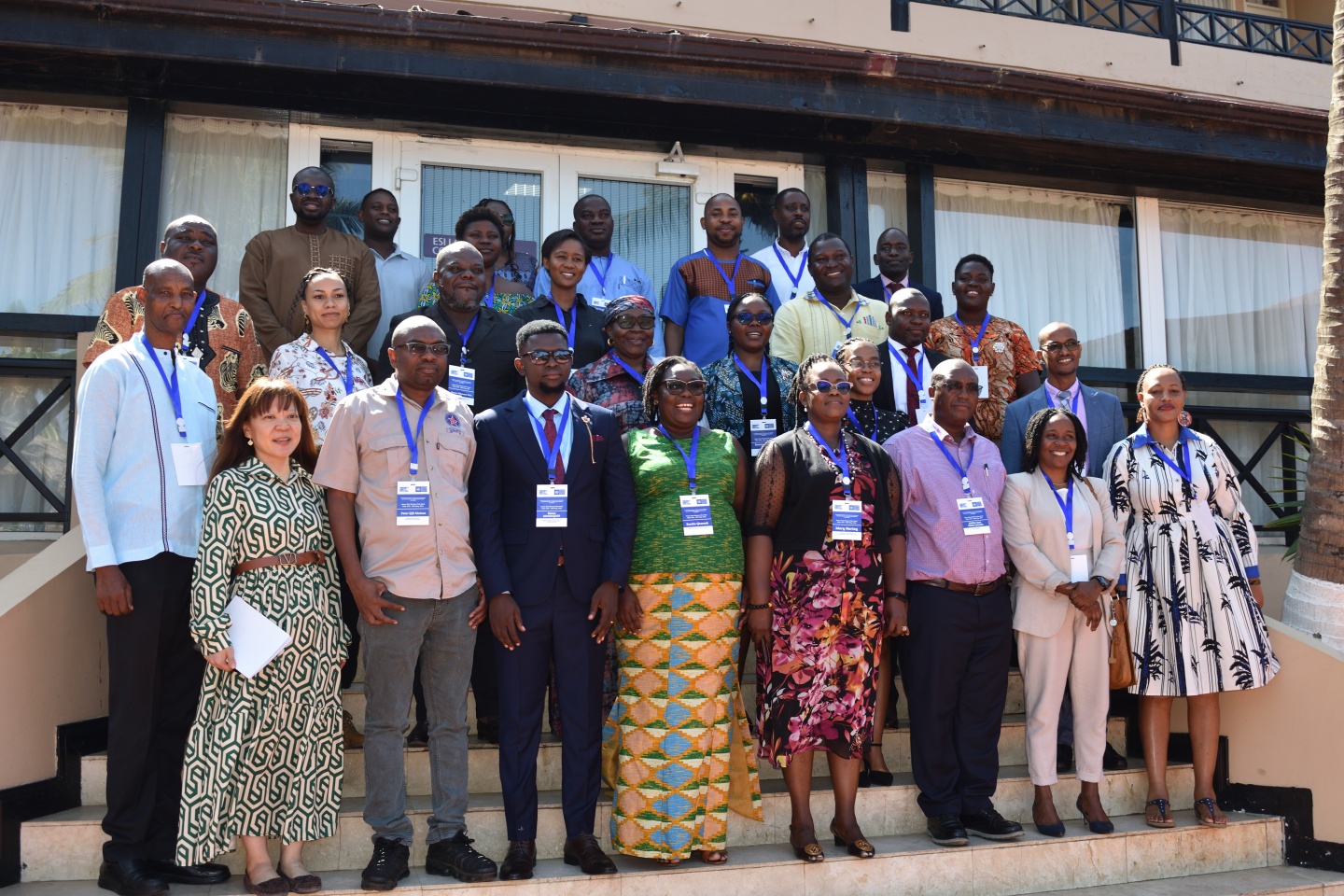Read this article in:
English
31 May, 2024Developing National Action Plans (NAPs) on business and human rights is a critical issue in Africa, necessitating inclusive and participatory approaches to ensure the protection and promotion of human rights across various sectors.
Over 20 trade union delegates from 10 African countries participated in a workshop on developing national action plans (NAPs) on business and human rights in Africa in Accra, Ghana, 27-28 May. The unions participated alongside other stakeholders from civil society organizations, national human rights institutions, and governments departments.
The workshop, held with support from FES AU and UNDP (Regional Service Centre for Africa) RSCA, promoted learning, sharing and making effective strategies among the NAP stakeholders. There was also emphasis on the importance of inclusive engagement and participatory strategies in the making of the NAPs.
Issues discussed included using NAPS as tools to engage mining companies on community concerns over loss of land to mining operations, and for measures to stop pollution of water sources. NAPs could also be used to stop gender-based violence and harassment and gender discrimination. On union demands, NAPs were key in promoting responsible business practices and human rights due diligence to end workers’ rights violations by some businesses including multinational corporations. Further NAPs were also important to enforce compliance with national and international labour standards.
Facilitators included those from the AU and the UNDP RSCA. Notably, the workshop took place at a time when the African Union’s draft policy on business and human rights is in the final consultative stages. So far only three countries – Kenya, Nigeria, and Uganda, have developed NAPs while others including Ethiopia, Ghana, and Tanzania, have begun the consultations to establish the plans. In sharing experiences about the NAP processes, some countries said they were at various stages of consultations.
Delegates from IndustriALL affiliates, the United Workers Union of Liberia (UWUL), and the Tanzania Union of Industrial & Commercial Workers (TUICO) also participated in the workshop.
Beatrice Francis Ouko, from TUICO said:
“We learnt a lot from experience sharing on the Ghana NAP processes and were also able to meet with Tanzania’s Commission for Human Rights and Good Governance, who are leading the NAP process in Tanzania. This will enrich union engagement.”
Amanuel Desalegne, FES AU programme manager said:
“Africa's abundant natural resources demand that laws be harmonised, and synergies increasingly built to ensure that human rights are protected and respected and that remedies are accessible to victims of abuses including workers and communities.”
“This workshop is an important engagement strategy by trade unions with the African Union and other NAP stakeholders. The development of a business and human rights policy by the AU is a positive development in our campaign for the inclusion of labour clauses in AU policies including the African Continental Free Trade Area,”
said Paule France Ndessomin, IndustriALL regional secretary for Sub-Saharan Africa.


